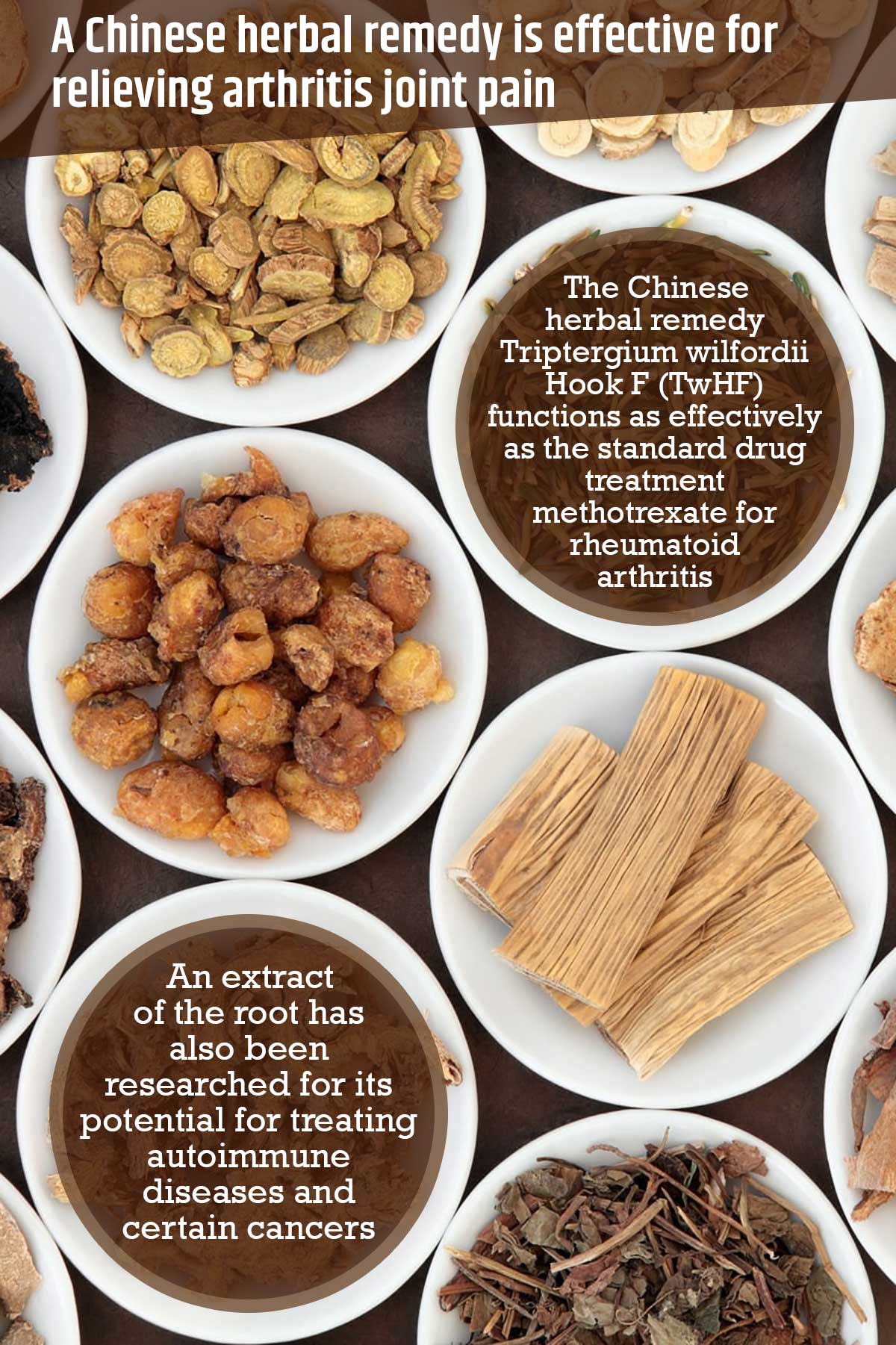Research has shown that the Chinese herbal remedy Triptergium wilfordii Hook F (TwHF), which is used to alleviate joint pain and reduce inflammation, functions as effectively as the standard drug treatment methotrexate, which is typically prescribed to deal with the symptoms of rheumatoid arthritis.1✅ JOURNAL REFERENCE
DOI: 10.1136/annrheumdis-2013-204807
It was also found that a combination of the herbal remedy and methotrexate was far better than treatment with only methotrexate. TwHF is made use of in Chinese medicine for treatment of joint pain, inflammation and swelling, and is approved in China for treating rheumatoid arthritis.
For the study, 207 individuals having active rheumatoid arthritis were randomly assigned to 1 of 3 treatments: methotrexate 12.5 mg once weekly; or TwHF 20 mg 3 times each day; or the 2 combined for the duration of 24 weeks.
The scientists wished to discover which of these methods would adequately relieve rheumatoid arthritis symptoms to achieve an ACR 50 (measure defined by the American College of Rheumatology) response.
This means a 50 percent improvement in the amount of swollen or tender joints as well as other criteria which includes disability, joint pain, and the physician’s assessment of rheumatoid arthritis severity.
The majority of the individuals finished the 24 weeks of the study. The amount of individuals reaching ACR 50 was nearly 46.5 percent in individuals given methotrexate alone; 55 percent in individuals given TwHF alone; and less than 77 percent in those given both.
The occurrence or kind of side effects suffered in the different treatment groups was negligible.
More than three hundred compounds have been discovered in TwHF, which includes diterpenoids that can suppress genes which control inflammation.
An extract of the root has also been researched for its potential for treating autoimmune diseases and certain cancers.
The researchers caution that that the dose of methotrexate made use of in the study is lower than that normally administered to rheumatoid arthritis patients in the West, and that 24 weeks is not long enough to assess disease progression.
The study results indicate that TwHF might be a promising way of treating rheumatoid arthritis, especially as not all individuals respond to DMARDs, and also since these medications are costly.



